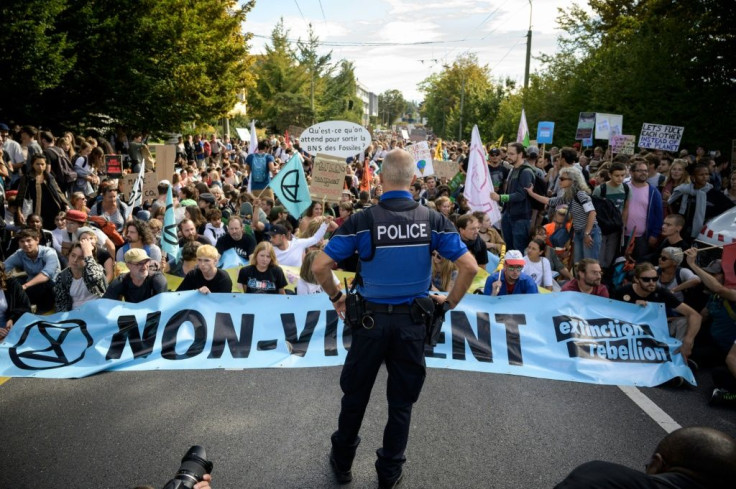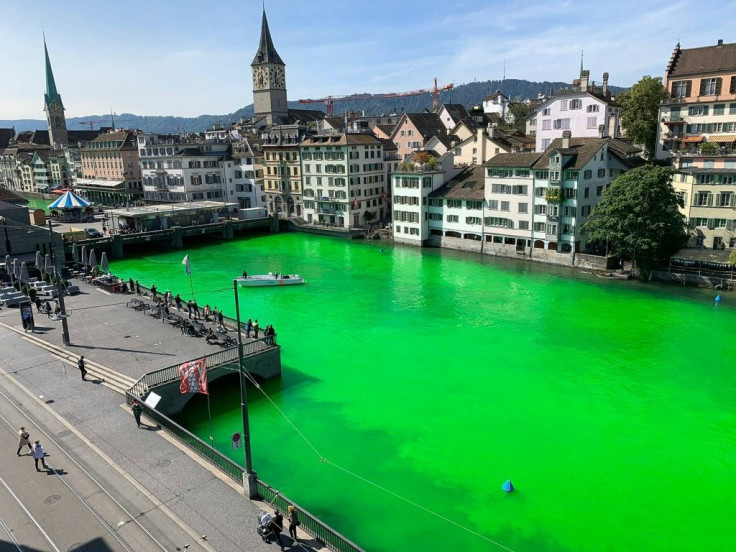Polls Point To 'Green Wave' In Swiss Vote

Voter concern about climate change could trigger a "green wave" in Switzerland's elections on Sunday, possibly yielding unprecedented gains for parties that back bold action to protect the planet.
Under Switzerland's unique political system, the nationwide vote will decide the 200 lower house lawmakers and 46 senators elected to four-year terms, but the make-up of the executive Federal Council will not be decided until December 11.
The country's so-called "magic formula" sees the council's seven cabinet positions divided among the four leading parties in the legislative branches, with the presidency rotating each year among the cabinet members.
The Green Party has never performed well enough to claim a Federal Council seat, but polls suggest its fortunes are rising.
This year, it could push its way into the executive branch through a coalition with the Green Liberal Party, according to experts and recent polls.
"We have every intention of being a force in government because I believe that is what Switzerland needs," Green Party vice president Lisa Mazzone told AFP.
'Top of the agenda'
In the 2015 vote, the anti-immigrant right-wing Swiss People's Party (SVP) stood first with 29.4 percent support.

The SVP, which has repeatedly been accused of waging campaigns that demonise migrants, remains atop the polls with 27.3 percent support, according to a survey released this month by public broadcaster RTS.
The poll also indicated that the Green Party, which won 7.1 percent in 2015, is now backed by 10.7 percent of voters.
And it gave the Green Liberals 7.3 percent support, an uptick on the 4.6 percent of the vote they took in 2015.
University of Geneva political scientist Pascal Sciarini told AFP that the data shows that anxiety about migration, the dominant issue in 2015, "has dropped significantly".

"Concerns about climate change are now at the top of the Swiss agenda," he said.
But the path for a staunch environmentalist to claim a Federal Council seat is complicated.
There are substantial divisions between the Greens and Green Liberals, notably over the state's role in socio-economic affairs, and the two parties may not be able to agree on a unity candidate for a ministerial post, experts and party officials said.
'Dormant' electorate
The rising environmental concerns of the Swiss electorate were on display in a series of recent demonstrations. Tens of thousands of people turned out in several cities in April for "climate strikes" partly inspired by Swedish activist Greta Thunberg.
Last month, 100,000 people marched through the capital Bern demanding comprehensive climate action from the next government, a significant turnout for a country of 8.5 million people.
Of the four parties that currently hold Federal Council seats, only the SVP are climate change sceptics, having denounced the role of "climate hysteria" in Swiss politics.
The Socialists have dubbed their programme a "Marshall Climate Plan," while the right-leaning Free Democratic Party has called for higher taxes on air tickets to offset emissions from jets. That represents a major shift for a party previously silent on environmental policy.
In a campaign that has seen multiple parties tout their climate credentials, the Green strategy has relied on mobilising "a dormant electorate," Mazzone told AFP.
Average turnout in a national Swiss election is typically below 50 percent and Mazzone explained the party has "identified a lot of potential among abstainers, especially young people."
The director of the Sotomo political research firm, Michael Hermann, told RTS that the shift from immigration to climate as the country's top political issue is one of the most dramatic pivots he has seen in Swiss politics.
"The green wave is rolling along," he said.
© Copyright AFP {{Year}}. All rights reserved.





















